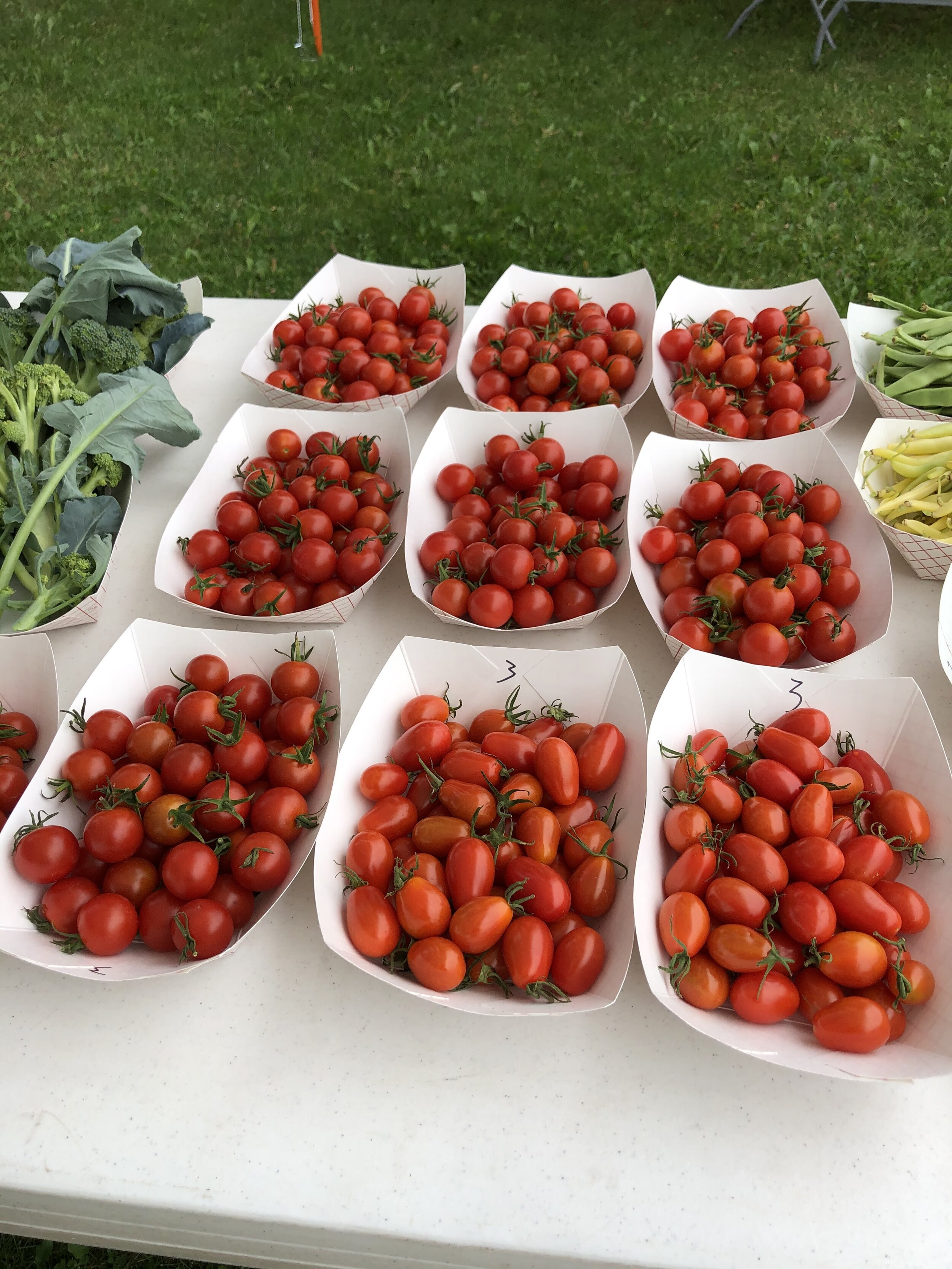They met in Korea, her home country, when Pat was in the service there, and eventually made their home in Hibbing where Min became known for “Min’s Egg Rolls” at the fairgrounds. For their day jobs, he was a firefighter and she worked at the hospital. In retirement, they bought the Side Lake Store and moved to lake country. But living at your business makes retirement really challenging. They decided to actually retire in 1999 and purchased the home they’re in now, on a hill outside Side Lake with 40 acres of rolling hills and woods. I visit on a breezy warm day in July and get to enjoy the rose garden and flower gardens at every turn.
I notice that all of the “fences” are actually antique iron bed head- and footboards—there must be a hundred of them—each fence unique. I ask Min about them. She tells of a friend inviting her to “dumpster dive” and finding the first few. Once folks heard that she liked them, they started dropping them off and she continues to receive them periodically, gifts left at the driveway and repurposed to ornate border markers. The fencing for the huge vegetable and berry gardens is more substantial, though, designed to keep the bears and the deer from the nearby woods out. The dining room table is covered with state, county, and regional fair ribbons that Min has won for her fruits, vegetables and flowers. I look through them, realizing that there are boxes more nearby. From small blue first place ribbons to huge rosettes with streamers, Min has won them all. I spent my summers at age 16 and 17 making awards just like these at a factory in an old, un-air-conditioned building in downtown Rock Island, Illinois. I think the wage was $1.65/hour, and I worked 3:30-9:30pm every night and all-day Saturday (a devastating schedule for a young woman wanting to hang out with friends). Just out of curiosity, I turned one of the large ribbons over to see where it was made and sure enough, Regalia Manufacturing Company is still operating 50 years later.
We head outside to pick raspberries and walk the beds of squash, dill, cucumbers, lettuce, tomatoes, peppers, onions, potatoes, cabbage, beans, peas, strawberry spinach (which I had never seen before), and apple trees. Pat and Min’s stand (Made by Min) at the Cook and Virginia Farmers Markets sells jams and jellies, pickled cucumbers and beans, antipasto, authentic Korean kimchi, several kinds of fresh as well as home-canned salsa, quick breads and whatever vegetables are ready that week. As we walk the vegetable beds that produce this abundance, I notice that they’re all well-mulched with leaves—and that makes perfect sense when you have acres of woods.
But I don’t see any bugs and I ask Min. She is noticing this too. They don’t spray here—they count on natural predators and hand-picking bugs when they appear. Min says that she doesn’t spray because she and Pat eat from the gardens, too, and she wants her customers to have the same freedom from pesticides that she enjoys. She doesn’t do much watering, either, because she doesn’t want to run their well dry. They soil is extremely sandy here and any water runs right through it. But the plants look stable despite this summer’s drought. The raspberries are plentiful, and we pick two pails full which Min sends home with lucky me!
What we really notice is the lack of bees. They’re usually buzzing through gardens like this, especially the raspberries. And we don’t see a single one. The Honeycrisp apple tree just up the hill has only two tiny apples on the whole tree. Something is up. We humans rely on bees to pollinate everything—they are absolutely essential to the food chain. According to www.pollinator.org,, “Birds, bats, butterflies, moths, flies, beetles, wasps, small mammals, and most importantly, bees are pollinators.” You might have noticed that this hasn’t been a good year for any of these pollinators in northern Minnesota. The drought has impacted us all, from the bears down to the flies. And loss of habitat has, too. Plant a pollinator area, urges the state of Minnesota. The Board of Water and Soil Resources will show you how and help you (http://bwsr.state.mn.us/l2l#:~:text=Minnesota%20residents%20can%20apply%20to,for%20their%20total%20reimbursement%20request)
But another factor may be operating in the case of bees: neonicotinoids, water-soluble insecticides that can be applied to the soil around plants to protect from unwanted insects. According to Texas A&M extension, “Although these low-level exposures do not normally kill bees directly, they may impact some bees’ ability to foraging for nectar, learn and remember where flowers are located, and possibly impair their ability to find their way home to the nest or hive.” More research is needed, but something is reducing the bee population across the U.S., and this is one candidate.
We end our visit on the patio surrounded by lilies, next to the garage with a large loft housing Min’s sewing room. If you’ve seen her at farmers markets, you know that Min makes amazing Minnesota mittens, sports-themed throws and warmers and children’s jackets and jumpsuits. Her Made by Min Facebook page (https://www.facebook.com/MinMadeIt ) can keep you up to date on products. And you can find Pat and Min at the Virginia Market Square on Thursdays 2:30-6 on Silver Lake and on Saturdays 8am-1 in the Cook City Park all summer.


